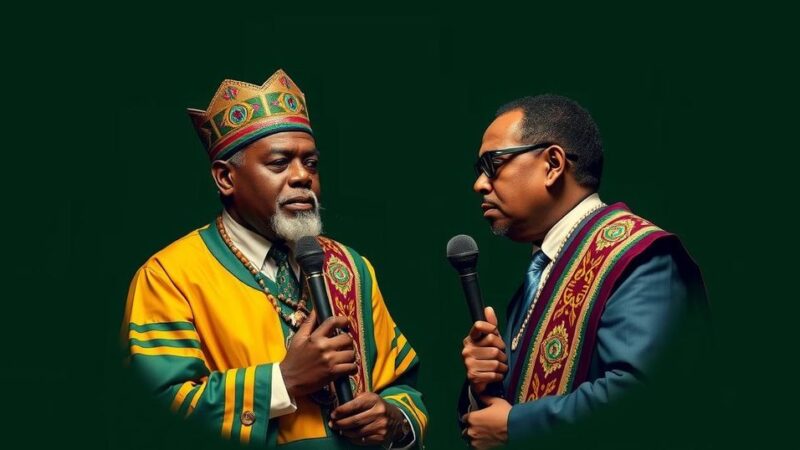The ruling party in Mozambique, Frelimo, has claimed victory in presidential elections, with Daniel Chapo receiving over 70 percent of the vote amid allegations of electoral fraud by opposition parties, led by Venancio Mondlane. The elections have been marred by violence and claims of manipulation, prompting calls for protests against the Frelimo regime, which has been in power for nearly fifty years.
The Presidential election in Mozambique concluded with the ruling Frelimo party’s candidate, Daniel Chapo, being proclaimed the victor after securing over 70 percent of the total votes, as reported by the National Election Commission (CNE). This event has sparked allegations of electoral fraud by opposition figures, particularly from independent candidate Venancio Mondlane, who received more than 20 percent of the votes. The governance of the Frelimo party, which has dominated Mozambique since its independence from Portugal in 1975, now extends to nearly half a century. Chapo, at 47 years of age, will assume the presidency in January, making him the first leader of Mozambique born after the country gained independence. Mondlane has publicly contested the election results, claiming systemic manipulation to benefit Frelimo and has called for nationwide protests on social media platforms. In his message, he urged, “The time has come for the people to take power and say that we now want to change the history of this country.” Violence surrounding the election has been notable; two officials associated with the opposition were killed prior to the voting amid allegations of police involvement. Following the election, the European Union’s observation mission criticized the process, noting the obstruction of their monitors and reported discrepancies in result reporting at polling stations.
Mozambique has a tumultuous political history characterized by lengthy domination by the Frelimo party and violent insurgencies. The 15-year civil conflict that concluded in the late 1990s further entrenched Frelimo’s authority, while its opposition party, Renamo, transitioned from a rebel faction to a political contender. Political tensions continue to manifest amid an environment of alleged electoral manipulation, ethnic divisions, and violence against opposition members, highlighting the chronic instability within the nation’s governance framework.
In summary, the recent election results in Mozambique have reaffirmed Frelimo’s longstanding control over the government, but allegations of electoral fraud and associated violence pose significant challenges to the legitimacy of the electoral process. The responses from opposition leaders reflect a growing demand for systemic change in the face of longstanding governance issues. Daniel Chapo’s upcoming presidency marks a new chapter in national leadership, yet it is fraught with potential unrest driven by ongoing disputes regarding the fairness of the electoral process.
Original Source: www.aljazeera.com






